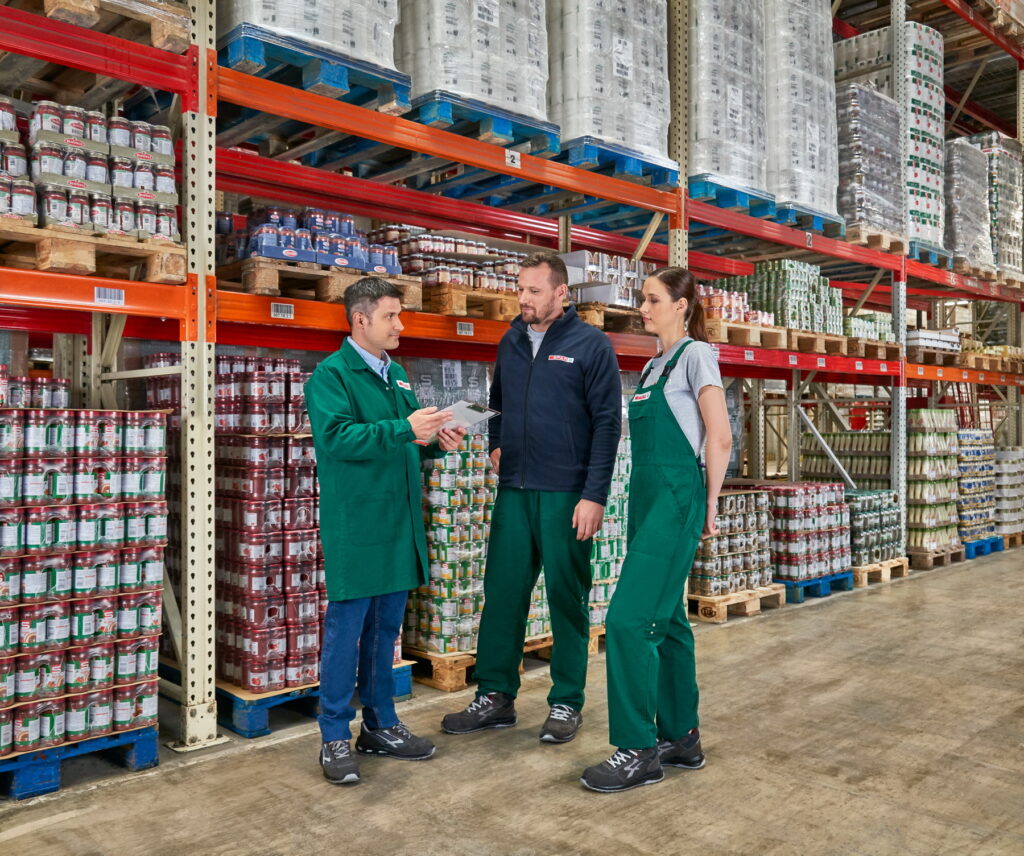Digitalization instead of paper: SPAR saves several tons of paper with solutions that match international trends
SPAR Hungary is reducing paper usage in its logistics centres by implementing new best practices, while digitalisation is also bringing significant environmental benefits in other areas.
 SPAR Hungary’s logistics centres in Bicske and Üllő are implementing new measures to reduce paper usage. Multi-page labels marking loading units in warehouses are now printed double-sided, reducing paper usage by almost half a tonne within four weeks of implementation. This is expected to save around 5.5 tonnes of paper annually – a significant reduction in resource wastage, while maintaining efficiency.
SPAR Hungary’s logistics centres in Bicske and Üllő are implementing new measures to reduce paper usage. Multi-page labels marking loading units in warehouses are now printed double-sided, reducing paper usage by almost half a tonne within four weeks of implementation. This is expected to save around 5.5 tonnes of paper annually – a significant reduction in resource wastage, while maintaining efficiency.
“Sustainability is now not only a fundamental principle at SPAR, but has become part of everyday operations, from logistics to store operations. We are proud that thanks to the creative and responsible approach of our colleagues, we can show tangible results in reducing paper consumption year after year,”
– said Márk Maczelka, Head of Communications at SPAR Hungary.
However, sustainability efforts do not stop at the warehouses. SPAR Hungary has recently introduced several digitalization measures that have significantly reduced paper consumption: paper-based cleaning and refrigeration control logs have been eliminated, electronic worksheets, service logs and online training materials have been introduced. Together, these measures reduce the company’s paper consumption by tens of tons per year. SPAR continues its digital innovations in Hungary, within the framework of which the use of electronic shelf labels has already been implemented in more than ten franchise partner stores and three self-operated stores: in Budapest, Debrecen and the newest supermarket in Szentendre. The paperless solution simultaneously serves to enhance the customer experience, make work processes more efficient and operate sustainably. Building on the promising experiences, SPAR would like to introduce the technology in other stores.
Paper saving is also a global trend: the digital transition brings not only environmental but also economic benefits. Companies that recognize the opportunities inherent in the digitalization of administration and documentation in time can become more flexible, efficient and sustainable in the long term. SPAR Hungary aims to be a leader in this area and set an example in the domestic retail trade.
Related news
Nearly 140 domestic suppliers, 60% growth – SPAR Regions Treasures program accelerates with AI solutions
🎧 Hallgasd a cikket: Lejátszás Szünet Folytatás Leállítás Nyelv: Auto…
Read more >Related news
ZEW: Economic expectations worsened in Germany and the euro area in February
🎧 Hallgasd a cikket: Lejátszás Szünet Folytatás Leállítás Nyelv: Auto…
Read more >









